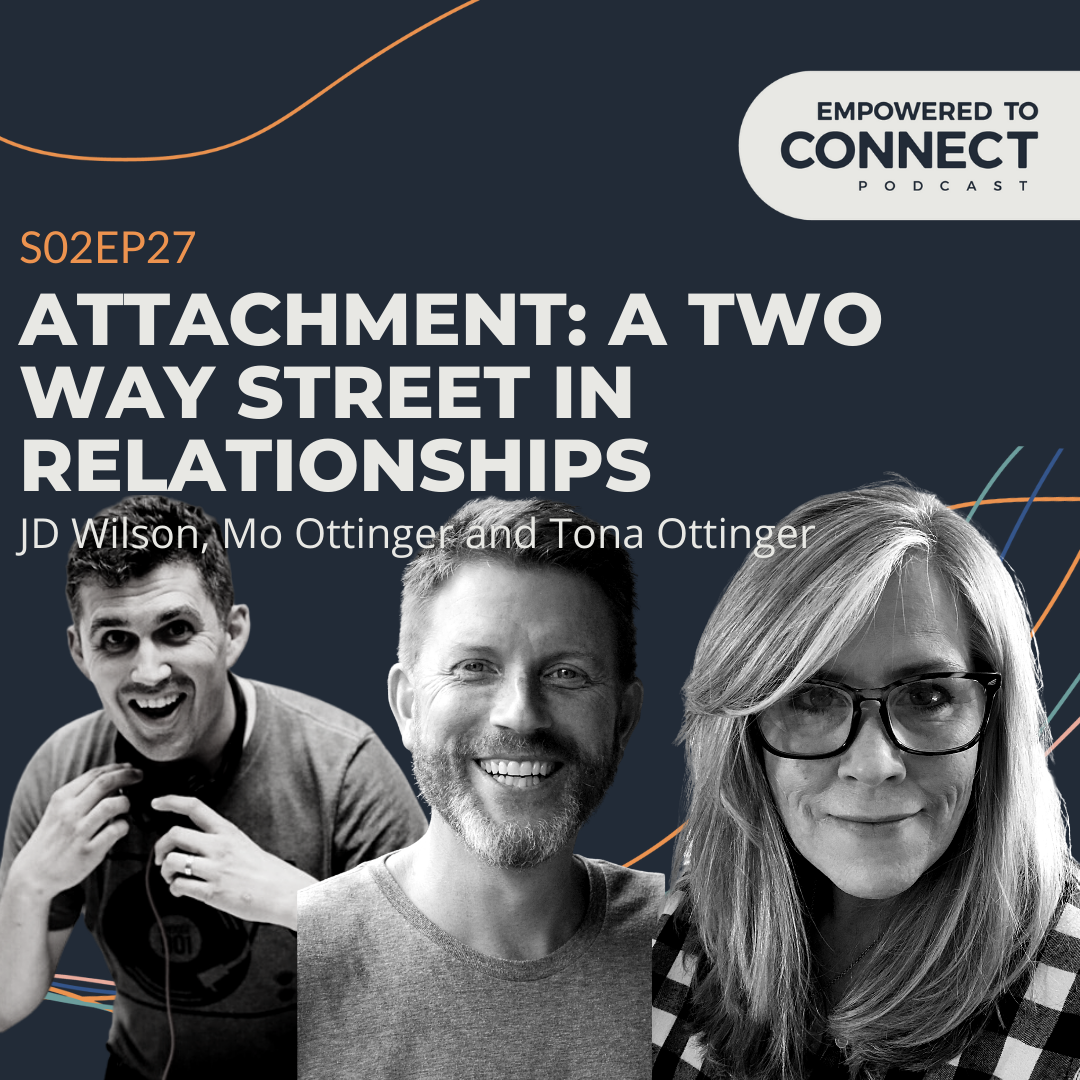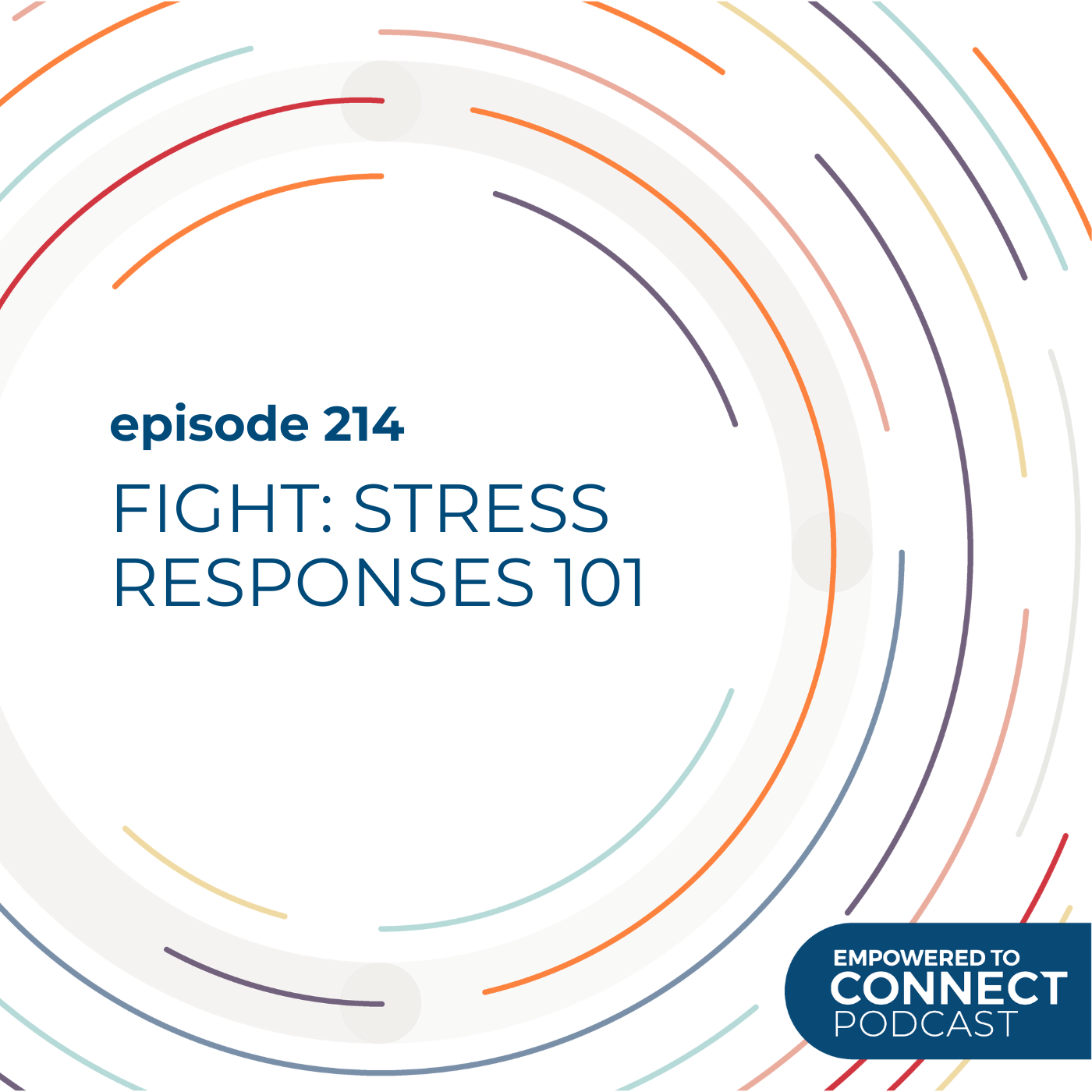Episode Transcript
[00:00:10] Speaker A: Welcome to Carpool Q A, where we give you one topic, one conversation to get you from point a to point b. I am host JD Wilson, and I'm here with Becca McKay and Tona Ottinger, and we're going to talk today about something that Becca is going to bring to us. And so, Becca, it's your turn to ask a question today.
[00:00:28] Speaker B: Yeah, my question today is, how can I be involved with my kid's life without being a helicopter?
Like, what's the right amount of involvement?
And when does it cross that line? When are we just helicoptering or hovering?
[00:00:45] Speaker C: Oh, gracious sakes.
I don't know. I feel like I vacillate. This is a really good question because I'm like, I don't know. It depends on the moment or whatever.
[00:00:57] Speaker A: I was going to say, at least for me, I think it depends on the child.
I think this is some. And so hear me out on this, because this might not work in other families, but I think the place where we have settled in on is trying to be fair across the board with time spent and attendance at different events and all that kind of stuff is not actually equal because not every kid values it the same way. And in fact, some kids might value our non attendance over our attendance in certain events or activities or whatever. And I bring that up to say, like, a lot of times, the helicopter parent thing is linked to time invested with a child at their activities, on their stuff. Constantly talking to coaches, constantly talking to teachers, constantly talking to other parents, like micromanaging every asset or every facet of a kid's life. And so, for us, what we found kind of early on was we really did not want to be unfair by being at some kids stuff and not being in others. What we found as our kids have gotten older and as they've kind of had found their voice for these things is sometimes they're like, oh, why would you come? I don't care if you're at that or not. I'd rather just go. And then other kids are like, what? You're not going to be at my Tuesday night practice?
No. I had not thought it was a big deal. I thought I could just drop you off. Like, no, how do you know what I need to work on?
In our family, our different kids have had different opinions of how involved they want us in their life. And so our default has been to be very involved with everything. And then as time goes to kind of see, what do they need? Do they need more involvement, less involvement? What are they vocalizing to us? And so that's been kind of our matrix for how to think about it so far.
[00:02:53] Speaker C: I appreciate the direction you were heading with that, JD, because I really think it's almost about how is it perceived by the child based on their personality or wiring or this idea of how involved is the right amount of involved, because you could be a helicopter or you could be sort of an absent, at least perceived to be based on the personality and wiring of the kiddo. So you might do the same thing or ask the same post pickup question. And for one child, it feels very like you're thinking about them and they feel seen and they're ready to share and they want to give you all the details. And if you ask the same question to another child, it might be perceived as being nosy and please get out of my business. So I think it really is about knowing the dance of the kids. Because when I think about this involved, to me, it's about how much do I know about what's going on in their world that I'm not privy to or witnessing. So I hear what you're saying about attendance. I'm thinking about how much is happening in their social settings or at school or in those text threads or in those friendships or that I don't know because I don't see. And how much do they want to give me information on, and then how much do they want to have as private, and how do I negotiate that or navigate that?
[00:04:30] Speaker B: And then I would add one third layer to that. So there's the attendance, then there's the knowing. Then there's the, I'll say, influencing as the positive and meddling as the negative. Right? Then I think if the question is when does it become helicoptering? There's like a point where, yeah, they get to have some privacy. There's some things that they don't need you to know. There's a point where there's some things they don't need you to attend or don't want you to attend. And then I think there's a level of some parents who want so much influence, they're not just attending and they're not just knowing, but they're also like, hey, coach, you're not doing this right with my kid. And if you would do XYZ and then kid, hey, if you did x, and so then you're really trying to control the kid, probably the environment and the other adults and the other kids. You're just trying to control everything. That, to me, is that extreme version of when it becomes real. Helicoptering is when all those three of those things are coming together, if that makes sense.
[00:05:31] Speaker A: Yeah, that's really good, Becca. Clearly. I mean, it's also an interesting psychological study to see. Right where I went to was like, helicoptering is just like, being around here. Too much practice and being totally talking to. I do think of that. I do link those with, like, hey, coach, talk to you for a second? Like, on Saturday, playing him very much, or going to a teacher and being like, so and so is picking on him. You're not doing anything about it. Or that's not a good example because you would need to talk about that.
[00:06:01] Speaker C: And I'm thinking about it as, like, 20 questions. When they get in the car, I'm like, to me, that's like, do they want me to ask them a question about their day, or do they want me to leave them alone? Yeah.
[00:06:15] Speaker B: I think it speaks to the question, which is how much autonomy is appropriate for kids, which both of you said different for different kids in different season at different ages.
[00:06:24] Speaker A: Totally.
[00:06:25] Speaker B: But it's that question of how much autonomy can they have? And I do think that there can be a danger of, like, when you're trying to build connection, you can be scared of the kid being autonomous, either psychologically or literally or with their decision making, like, any of those three prongs, I think you can get scared of it and you can want to be involved. To go back to our intro word, you want to be involved in some kind of way. So what's the appropriate amount of involvement? What's coming to my mind from what we talk about here is this idea of scaffolding is giving a kid the right amount of support needed. So same with this. We want to give each kid the right amount of involvement needed. Some kids need us to advocate for them with their coach because they can't find their voice. And it's really needed. Other kids, like you said, jd, need to be able to say, hey, see you after. I don't want you here during this. I'm embarrassed. So there's different levels of autonomy and a scaffolded approach, I think is the best way forward. I don't think there's, like, one answer, like, you should go to the games, but don't you dare say anything. I think it totally depends on the situation.
[00:07:35] Speaker A: Yeah. And I think same would go with the surveillance piece. Right.
Your kids are. And I say surveillance because I love that.
[00:07:46] Speaker B: That's so funny.
[00:07:47] Speaker C: I love it.
[00:07:48] Speaker A: We live in an age of security. Cameras and smartphones.
[00:07:52] Speaker C: Life 360.
[00:07:53] Speaker A: Life 360.
[00:07:54] Speaker C: I love me some life 360 screen time control.
[00:07:57] Speaker A: I mean, a number of everything I'll turn downtime on right now. Don't think that I won't. I will end that FaceTime call on the spot at the moment from my phone. I don't even have to have your phone.
[00:08:08] Speaker C: I don't even have to get up off the couch and get in proximity.
[00:08:14] Speaker A: I think that also, if we don't have relationships with our kids, it's much harder to know what they need and where they're going. Right? So same in our house as the sports deal, our kids have varying levels of accountability or checks we've put in place. And the way we always frame it with them is like, hey, we want you to know we're going to read your texts. Sometimes with you, we'll just ask you to bring them up and then sometimes we might read them at night just to make sure that we know what's going on in your life and that we're helping keep you safe. Now, are we going to do that when they're seniors in high school? Probably not, right? I hope not. But we framed that with them from the very beginning, very openly. So it's not like we've been caught checking their text at night and being like, oh, no, we said from the beginning, hey, before you get this phone, I just want you to know in the front end to keep you safe, anything that's texted, just know we're going to see it and let your friends know we're going to see it. And just know that on the front end, you don't have to ever wonder, are we sneaking behind and reading your text? Like, yes, but it's not sneaking. Like, we're doing that to keep you safe. So I think with boundaries and with what might feel like helicoptering, it's conversations and it's clear communication. I think upfront communication heals a whole lot of pretrauma from happening because the invasions of privacy and all that are clearly communicated, like, what is privacy and what is a responsibility of parents to keep their kids safe and all.
[00:09:48] Speaker C: Like revealed in advance. That's a phrase that's coming to mind right now, JD, is like, we're revealing advance the expectations and the playbook for this level of autonomy and freedom. That kind of thing ages and stages.
Again, to your point, I'm not going to give my 7th grade or 6th grader as much autonomy as I would my senior in high school, but it's because we've collaborated together to build trust and rules of engagement, if you will.
But I think about again, I just feel like a lot of it is about the perception of the child as much as it is like how other people would perceive helicoptering. I wonder what role our own motivations or fears or social dynamics or insecurities or all of that is part of this question. And I would say it's a self check. It's a little bit of like, get curious, evaluate your own motivation, be slow to act and quick to think about why you're doing what you're doing. And is it in the best interest of the child at this time to do a, B and C and D?
What can I edit to open up lines of communication in a way that might be different for different children?
This has been very true as we've parented our older kids. They are such different personalities that I really have to approach this idea of engagement very differently. And if I were to treat them all the same, some might feel neglected and some would feel I was being overbearing. So how willing am I to edit out of love and care? And ultimately I want the relationship more than I want to just default to myself.
So I don't know. It's a complex idea that I think is very nuanced and individual.
Right?
[00:11:57] Speaker A: Totally.
[00:11:59] Speaker B: If you clicked on this episode because you're like either helicopter parents are so annoying or oh no, I might be one, I would just say everybody's trying their best to figure it out. And don't look at other parents as your model. Look at your kids and your relationship with your kids. Agreed. Because every relationship is different. And so there's going to be some kids who have a closer relationship than you do. And there's going to be some kids that have a more independent relationship than you do. And you don't have to compare that or within your family, it's okay to have different relationships. So I would just encourage you, if you're listening and trying to put yourself on the map, to just look at each relationship as a unique relationship that has different needs and just be willing, like Tana said and JD said, to be self reflective and to check in and to just take steps and make moves. We're going to get it wrong sometimes. We're going to get over involved in a situation because it brings up something from our past or we're going to be absent from a situation because it's something that we don't. I don't want to go to comic Con and so I'm just not going to go. And we maybe miss an opportunity to be involved or I'm getting in the coach's face and yelling because this sport was really important to me when I was in college. Both of those can happen to anybody. And so just be willing to just check yourself along the way and make adjustments when you need to.
[00:13:22] Speaker C: We have a little phrase about sort of this idea of saying yes and no and it's like say yes when I can and no when I need to. And I think there is some kind of rhythm like that when it comes to this idea of being involved. Like be involved when I need to and don't be when I don't need to.
It is such a little nuanced dance of needs and maybe I would say make sure the child's needs are trumping your needs.
[00:13:51] Speaker A: Yeah, right. Yeah. Well, guys, thank you. That's all we've got today for carpool. Q A. We will see you next week.


